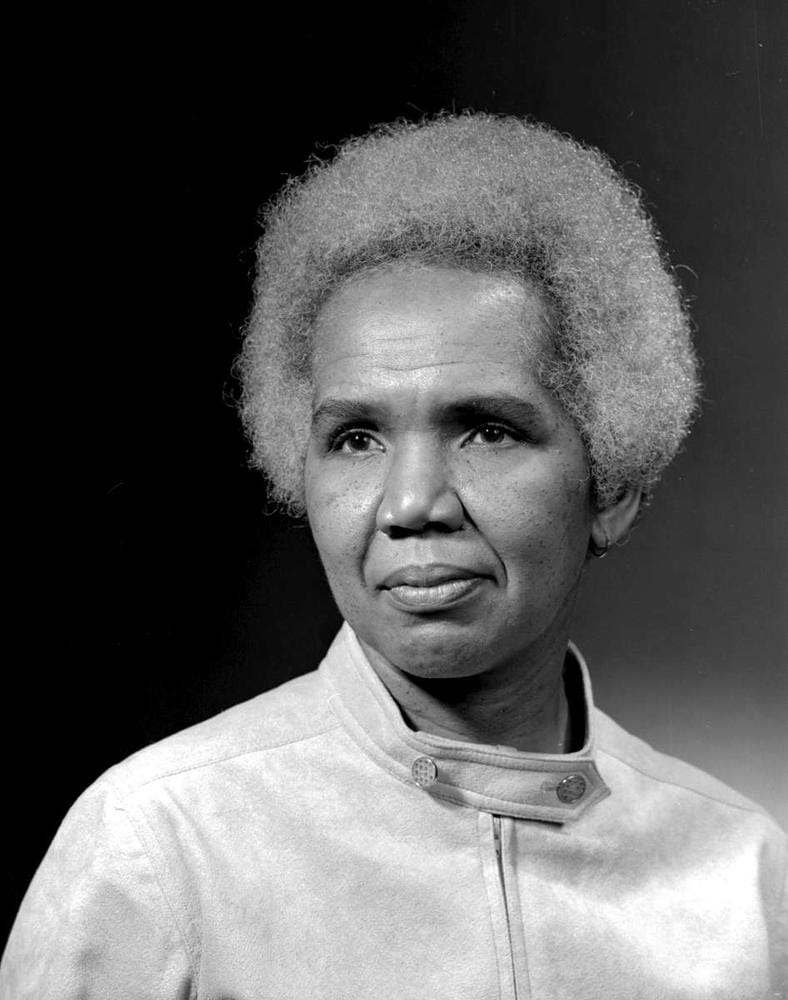
Modernization
Learn more about government’s intention to modernize the museum to protect our historic holdings and provide better access to our collections.
"To be black and female in a society which is both racist and sexist is to be in the unique position of having nowhere to go but up." — Rosemary Brown.
 Rosemary Brown was the first black woman to be elected to the Legislative Assembly of British Columbia, which also made her the first black woman to be elected to any provincial legislative assembly in Canada.
Rosemary Brown was the first black woman to be elected to the Legislative Assembly of British Columbia, which also made her the first black woman to be elected to any provincial legislative assembly in Canada.
She was appointed to the Ontario Human Rights Commission, the Queen’s Privy Council for Canada, the federal Security Intelligence Review Committee, the Order of British Columbia and the Order of Canada.
Yet despite the many honours and awards Brown received in her lifetime, her greatest contribution to Canada may still be largely unrecognized.
Intersectionality—she was one of the first Canadians to talk about it.
Coined by lawyer and American civil rights advocate Kimberlé Williams Crenshaw, intersectionality is the theory that different aspects of one’s social identity (e.g. race, gender, sexual orientation) can combine to create unique forms of discrimination.
It’s the antithesis to the idea that forms of discrimination are mutually exclusive and that everyone who experiences one form of discrimination will experience it the same way.
Intersectionality is the best available framework for understanding complicated social issues because it recognizes diversity within social groups from the outset. In other words, it embraces complexity where other schools of thought may oversimplify for expediency.
On April 7, 1973, at the National Congress of Black Women in Canada, Brown acknowledged tension between different social movements but spoke about the power of intersectionality to unify them.
Today, intersectionality is still not a universally accepted idea, so we thank Rosemary Brown for pointing us in the right direction almost 50 years ago, and in a humble tribute to her and to Black History Month, here’s an excerpt from that 1973 speech, delivered just across the street from our museum at the BC Legislature:
Whenever anyone - male or female; Black or white - asks me why I am part of the women’s liberation movement - I always reply “because I am a woman”. Then I wait for the significance of their question to dawn on them - for in reality what they have said to me is that since I am a Black person, Black oppression is the only oppression with which they expect me to concern myself.
 But for me, not to participate in the Women’s Liberation Movement would be to deny my womanhood, and to be Black and female in a society which is both racist and sexist is to be in the unique position of having nowhere to go but up! And to be in the unique position of learning about survival from being able to observe at a very close range the Achilles heel of a very great nation. Indeed, my Black friends who congratulate me for speaking out on racial issues, chastise me for being a feminist. And my sisters who love me for speaking out on the issue of the movement chastise me for being preoccupied with my race. Add to all of the fact that I am a Socialist living in a capitalist country and you will wonder what worlds are left for me to conquer or be conquered by.
But for me, not to participate in the Women’s Liberation Movement would be to deny my womanhood, and to be Black and female in a society which is both racist and sexist is to be in the unique position of having nowhere to go but up! And to be in the unique position of learning about survival from being able to observe at a very close range the Achilles heel of a very great nation. Indeed, my Black friends who congratulate me for speaking out on racial issues, chastise me for being a feminist. And my sisters who love me for speaking out on the issue of the movement chastise me for being preoccupied with my race. Add to all of the fact that I am a Socialist living in a capitalist country and you will wonder what worlds are left for me to conquer or be conquered by.
Yet, I enjoy a strange kind of freedom because in order to survive I have had to learn and learn well about racists and about sexists and about capitalists. And the wisdom that I have learned from these studies is that all people depend on all people and that unless all of us are free, none of us will be free. And that, indeed, when I fight for your freedom I am also fighting for my own and when I am fighting for my freedom I am also fighting for my sisters and my brothers and for all of our children.
I learned, also, that this country, Canada, is beautiful and strong only because of the people of both sexes, and of all races and political persuasions who have lived in it and contributed to its culture and its soul and its growth. And that its strength and its beauty will increase only to the extent that it is able to accept and respect all of its people equally.
- - - -
Explore challenging ideas like intersectionality with our It’s Complicated discussion series, or learn more about BC’s women collectors and creators at our next Live at Lunch.
And don’t forget to visit to the BC Black History Awareness Society Learning Centre to learn more about the Black leaders who helped shaped our province.